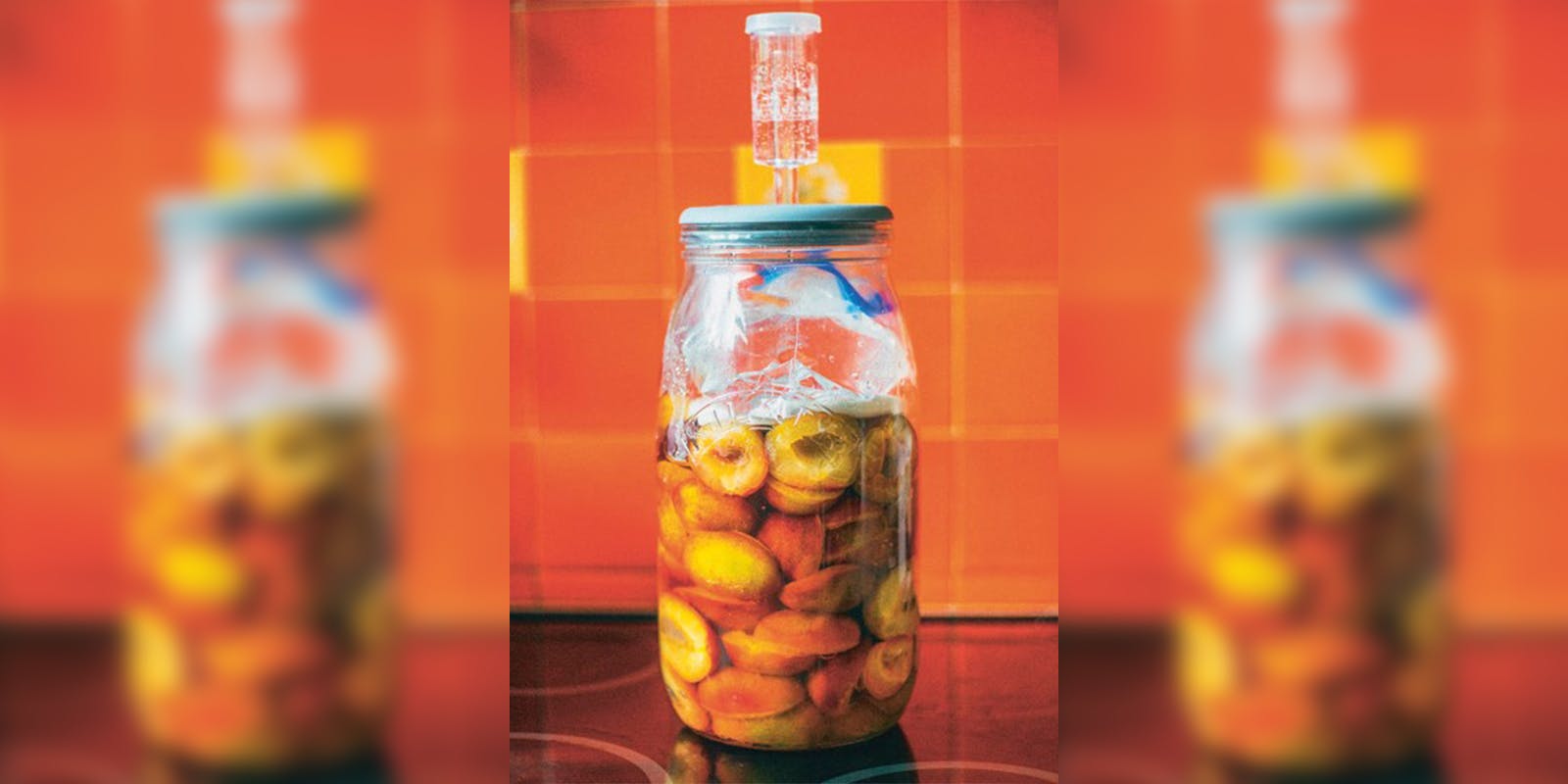Lacto peaches, plums, and nectarines are tart, sweet, and fragrant.
Their skins are deeply sour, and can be removed and dehydrated post fermentation, and enjoyed as a seasoning that complements creamy flavours and seafood. The flesh infuses with a subtle ginger and smoky aroma that promotes their pairing in both savoury and sweet uses. Smoked salt complements the fruit well, but normal sea salt can be used instead. You can make these ferments without any additional ingredients besides salt, but I wanted to use them as an example of a simple simultaneous fermentation and infusion, which is why I used ginger, too. For detailed instructions, follow the recipe for lacto tomatoes (see 68).
FERMENTER'S NOTE: Reserve the brine, as this is a delicious, sour, salty juice that's been transformed into a wonderful marinade similar to the Japanese ume su, a tangy, salty vinegar-like product made from plums. In small amounts, this brine can transform even dull black coffee into something elegant, smooth, and fruity.
INGREDIENTS
Equipment:
- 1.5-litre glass jar or crock
- glass or ceramic weight
- airlock or elastic band (optional) OR vacuum bag
Ingredients:
- 1kg plums, peaches, or nectarines
- 21g smokd sea salt (2%)
- 10g ginger root, halved
METHOD
-
For the best results, use ripe but not overly soft fruit. Halve the fruit and remove the stones. Add to the jar and mix in the smoked salt. Add the ginger and apply the weight. Alternatively, use a vacuum bag (see p72).
-
Add an airlock and close the lid securely, making sure it's airtight or use an elastic band around the clip (see p67). Alternatively, you will need to burp it daily (see p67).
-
By day 5-7, the fruit will be pleasantly sour and fragrant. If you want to preserve more texture, catch them at this stage. If you want a fruity, cidery flavour, age for 3-4 days more, but note that the flesh will start to break down.
-
Once fermented, they can be dehydrated and stored at room temperature in an airtight jar. To do so, remove the skin and dry the flesh separately at 60°C (140°F) for 10 hours. Or they will last 4 months in a fridge in an airtight container (packed in their brine).














